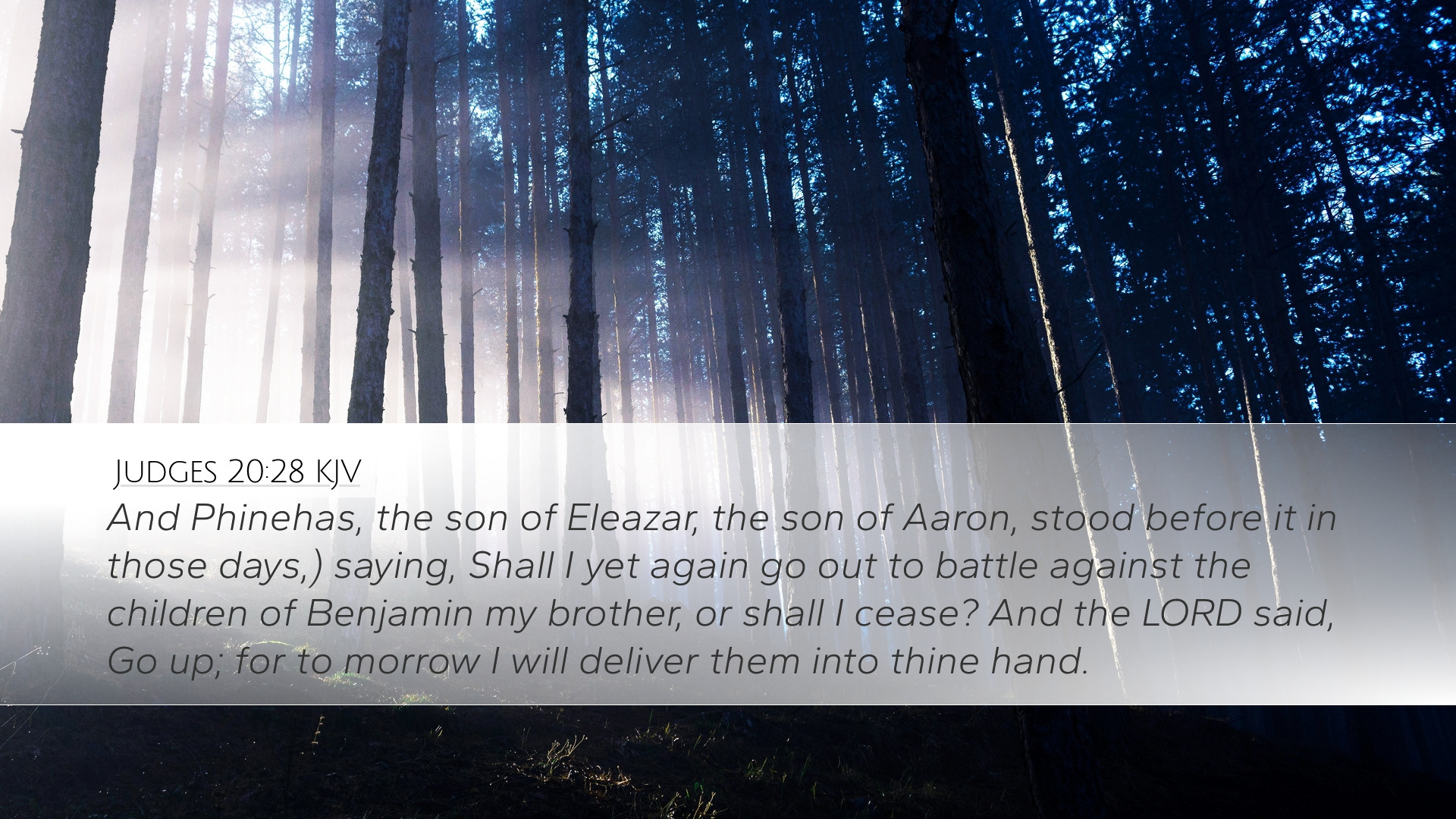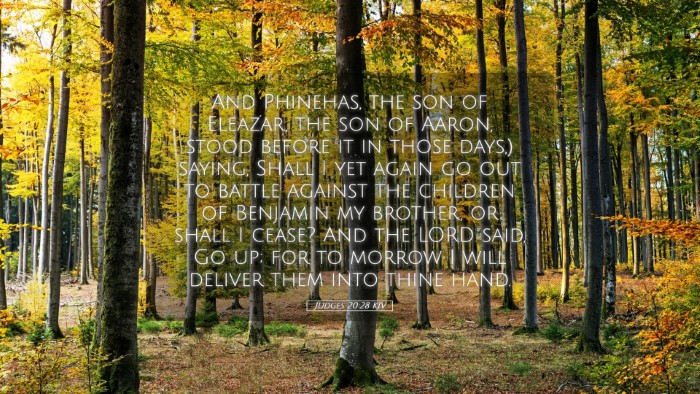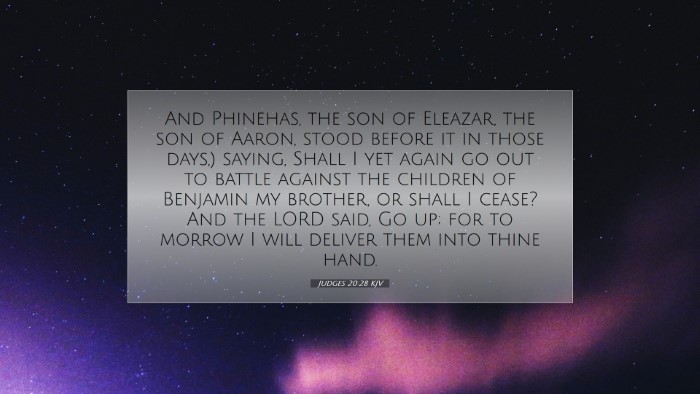Bible Commentary on Judges 20:28
Judges 20:28 (NIV): "And Phinehas son of Eleazar, the son of Aaron, stood before it in those days and asked, 'Shall I go up again to battle against the Benjamites, my fellow Israelites, or shall I stop?' The Lord said: 'Go, for tomorrow I will give them into your hands.'
Introduction
The narrative presented in Judges 20 revolves around the conflict involving the tribe of Benjamin and the other Israelite tribes. This specific verse, Judges 20:28, marks a pivotal moment in the Israelites' quest for divine guidance in the midst of their warfare. Understanding this verse requires examining both its historical context and the broader theological implications it holds for the people of God.
Contextual Background
The backdrop of Judges 20 is a civil war among the tribes of Israel, sparked by heinous acts committed in Gibeah of Benjamin. Following atrocities that stirred collective outrage, Israel united to seek retribution against the tribe of Benjamin, leading to a series of battles.
In this chaotic environment, the importance of divine guidance becomes paramount. The Israelites repeatedly seek the Lord’s direction, demonstrating their recognition of His sovereignty over their military endeavors.
Phinehas' Role
Phinehas, the grandson of Aaron, assumes a significant role in this context. His involvement symbolizes the priestly representation of the people before God. Notably, his questions encapsulate the essence of inquiry that believers should embody when making critical decisions.
- Priestly Leadership: Phinehas’s query illustrates the necessity of seeking divine counsel in a leadership position, echoing the principle that leaders are accountable to God.
- Spiritual Sensitivity: In the midst of conflict, Phinehas demonstrates a spirituality that prioritizes God's will over human ambition, reminding leaders today of the importance of prayerful discernment.
Divine Response
The Lord’s response to Phinehas is both direct and affirming: "Go, for tomorrow I will give them into your hands." This promise underscores several key themes:
- Assurance of Victory: God’s declaration of impending victory conveys His unwavering commitment to Israel despite the ongoing strife and bloodshed.
- Divine Sovereignty: The phrase highlights God’s control over the situation; while conflict and human failure abound, His plans will ultimately prevail.
- Timing of God: "Tomorrow" indicates that God’s timing is perfect, necessitating trust from the Israelites as they await the fulfillment of His promise.
Theological Implications
The exchange between Phinehas and God holds significant theological insights:
- The Centrality of Prayer: This passage emphasizes the importance of prayer in decision-making processes, particularly in matters of significance. Leaders and believers alike must continually seek God’s will.
- God's Faithfulness: The assurance given by God amid turmoil serves as a reminder of His faithfulness. Israel's eventual victory must be understood as a testament to God's enduring promise to His people.
- Moral Responsibility: The context reminds us that while God's promises are sure, individuals and communities must still grapple with the consequences of moral failures, as initiated by the events in Gibeah.
Practical Applications
For pastors, students, and scholars, Judges 20:28 offers rich ground for practical application:
- Encouragement in Conflict: Leaders can derive encouragement from the assurance that God provides guidance and victory even when circumstances appear bleak.
- Commitment to Prayer: This verse compels individuals and church communities to deepen their commitment to prayer as a means of seeking divine direction, especially in making pivotal decisions.
- Trusting God's Timing: Believers are challenged to trust in God’s timing, understanding that His plans may unfold differently than expected, yet are ultimately for their good.
Conclusion
Judges 20:28 encapsulates a moment of divine interaction, illuminating the role of prayer, the assurance of God’s promises, and the necessity of leadership rooted in faith. By examining this verse alongside the contributions of public domain commentaries, we glean insights that remain relevant for contemporary believers. Recognizing God’s sovereignty in conflict and our call to seek His will, we encounter a timeless invitation to trust in His faithfulness.


